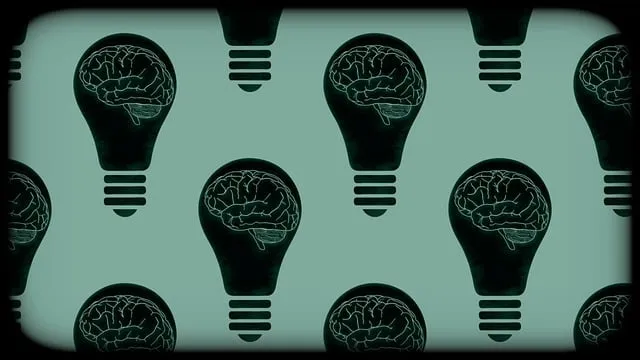Coping skills and resilience are essential for managing stress and emotions, especially in demanding healthcare roles like those offered by Kaiser Permanente mental health jobs in Wheat Ridge. Kaiser Permanente leads in promoting mental well-being with holistic stress reduction methods, workshops, counseling, and support groups, fostering a supportive environment. Personal coping strategies like mindfulness, exercise, and healthy eating are crucial for preventing burnout among healthcare professionals. Specialized training programs focused on resilience, self-care, and cultural sensitivity further enhance the well-being of Kaiser Permanente's mental health staff in Wheat Ridge, ultimately benefiting patient care.
In today’s fast-paced world, effective coping skills are essential for navigating life’s challenges. This article explores the critical role of coping mechanisms in mental health support, with a particular focus on programs offered by organizations like Kaiser Permanente and their impact on well-being. We delve into strategies for personal growth, examining case studies such as Wheat Ridge’s on-the-job training initiatives. By understanding coping skills, we can enhance our resilience, especially in demanding environments like Kaiser Permanente mental health jobs.
- Understanding Coping Skills and Their Significance in Mental Health Support
- The Role of Kaiser Permanente in Promoting Resilience and Well-being
- Effective Strategies for Developing Personal Coping Mechanisms
- Practical Applications at Wheat Ridge: A Case Study on On-the-Job Coping Skills Training
Understanding Coping Skills and Their Significance in Mental Health Support

Coping skills are adaptive behaviors and strategies that individuals use to navigate through stressful situations, manage emotions, and maintain mental well-being. They play a pivotal role in preventing and mitigating issues related to mental health, especially for those seeking careers in Kaiser Permanente mental health jobs in Wheat Ridge. Understanding these skills is crucial as they empower individuals to face challenges head-on, fostering resilience and emotional intelligence.
In the context of Depression Prevention, building robust coping mechanisms can help individuals recognize and manage symptoms early on. Resilience Building involves developing strategies to bounce back from adversity, which is essential for maintaining mental health in stressful environments. By integrating these skills into daily routines, people can enhance their Emotional Intelligence, enabling them to understand and effectively manage their own emotions as well as respond empathetically to others’ emotional needs.
The Role of Kaiser Permanente in Promoting Resilience and Well-being

Kaiser Permanente, a renowned healthcare organization based in Wheat Ridge, plays a pivotal role in promoting resilience and well-being among its members and employees. Through various initiatives and programs, they foster a culture that supports mental health and inner strength development. The organization offers comprehensive resources for stress reduction methods, focusing on holistic approaches to improve overall well-being.
In the competitive healthcare sector, Kaiser Permanente stands out by prioritizing employee satisfaction and mental health. They organize workshops, counseling sessions, and support groups aimed at boosting confidence and providing tools to navigate life’s challenges. These efforts not only contribute to a healthier workplace but also have a positive ripple effect on the community at large, demonstrating the significant impact of such programs in fostering resilience.
Effective Strategies for Developing Personal Coping Mechanisms

Developing personal coping mechanisms is a vital skill, especially in demanding professions like healthcare where stress and burnout are prevalent. At Kaiser Permanente mental health jobs in Wheat Ridge, for instance, professionals prioritize self-care to maintain resilience. One effective strategy involves integrating mindfulness practices such as meditation or deep breathing exercises into daily routines, which can significantly reduce stress levels and enhance emotional regulation. These techniques enable healthcare providers to cultivate a moment-by-moment awareness, helping them stay grounded under pressure.
Additionally, engaging in regular physical activity and maintaining a balanced diet are essential Burnout Prevention Strategies for Healthcare Providers. Community Outreach Program Implementations that focus on mental health can also foster support networks and provide opportunities for professionals to connect with peers, share experiences, and learn from one another. Stress Management Workshops Organization within healthcare institutions further equips employees with practical tools to manage stress, fostering a culture of well-being that benefits both individuals and the organization as a whole.
Practical Applications at Wheat Ridge: A Case Study on On-the-Job Coping Skills Training

At Wheat Ridge, a leading healthcare provider like Kaiser Permanente focuses on equipping its mental health professionals with robust coping skills through specialized training. This initiative stems from a deep understanding that effective mental healthcare requires not just technical expertise but also resilience and self-care among practitioners. The on-the-job training program integrates practical applications designed to enhance the well-being of mental health workers, ensuring they can, in turn, provide superior care to their clients.
Through collaborative workshops and mentoring sessions, Wheat Ridge fosters a culture of Cultural Sensitivity in Mental Healthcare Practice, addressing the unique challenges faced by professionals navigating complex emotional landscapes. This comprehensive approach incorporates elements from Mental Health Policy Analysis and Advocacy, empowering staff to not only cope with job-related stress but also advocate for policies that support mental wellness coaching programs development within the organization. By investing in their employees’ mental wellness, Kaiser Permanente at Wheat Ridge sets a standard for holistic care, reflecting a commitment to both patient and provider well-being.
Coping skills development plays a pivotal role in fostering resilience and enhancing well-being, especially within the context of mental health support. As demonstrated by Kaiser Permanente’s initiatives and the case study on on-the-job training at Wheat Ridge, these skills can be effectively taught and strengthened. By integrating practical strategies into their programs, organizations like Kaiser Permanente contribute to empowering individuals in their mental health journeys. This approach not only benefits employees but also has the potential to positively impact the broader community, creating a network of resilient individuals ready to face life’s challenges head-on.






